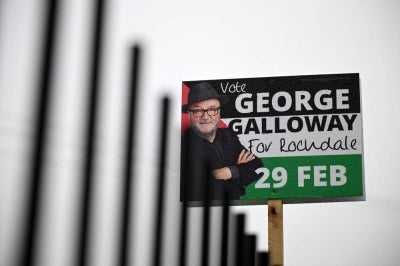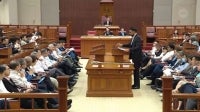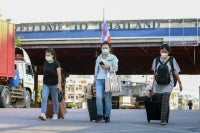Asean Centrality is the way forward, but how do we champion the agenda?
ZOKHRI IDRIS
2022 witnesses world forums taking place in Southeast Asia. The Shangri-La Dialogue in June, while it was not an official state to state meeting, still signifies clear confrontational signals between the superpowers.
Later in October, Indonesia will host the G20 meeting, attempting to offer a more robust approach to Ukraine-Russia conflicts.
For the first time since the war broke out in February this year, President Putin and President Zelensky will be attending the same forum on an international soil.
Also throughout the year, Thailand will host the Asia Pacific Economic Cooperation (APEC) meetings, once again bringing all Asia Pacific powerhouses into the region.
As a regional entity that is 55 years old, Asean has placed itself as a hub for political reconciliation, economic investment as well as for social integration. It has not reached to an excellent level of operationalization, yet the Association carries so much potential in the future.
Undeniably, the presence and the future geopolitics stem in Asia and Southeast Asia is the hub of the great powers’ focus.
Yet, there is silent anxiety whether Asean could weather every geopolitics dynamics within and outside the region.
Asean is certainly not becoming the “elephants in the room” in the years to come in the context of the great power rivalries.
None of its member states too has the “equilibrium capacity” in managing rising conflicts between Washington and Beijing.
Nevertheless, Asean as a region, has the potential in becoming the “balancing power” between the rivals.
The potential balancing power is conditioned when the region could infuse Asean way (which centralises on consultation and consensus) with Asean Centrality.
Asean Centrality has been a concept when the Asean Charter is signed on November 2007.
It posits to align major powers like China, US, Japan, and India into Asean’s framework through different tiers of multilateralism.
Asean takes the lead in creating active and robust integration of major powers in safeguarding Asean’s interets.
However, we are facing an issue in which, many Asean leaders are entrapped in domestic politics at the expense of ‘regional building politics.’
In addition, great powers’ assertiveness into domestic politics of Vietnam, The Philippines and Cambodia has increased government to government alignment, without overseeing the regional interests.
How do we solve this ‘entrapment’ and transform Asean Centrality (AC) as a regional agenda? ASEAN must develop its:
1. Community building of dedicated, determined, and able to defend AC in its truest form.Some experts would argue that AC is still undefined and under-operationalised. However, the problem we are facing is surely not a technical based, but rather, lack of individuals and organisations to strive for the truest meaning of AC.
AC is not about accommodating great powers into Asean regional agenda. Instead, it is a drive to align powers into Asean-led agenda and mechanisms.
We anchor our regional agenda, and we ensure that our anchor is not being influenced or distorted by other countries outside the region.
Asean has its community building of political, economic, security and cultural integration. While these are still important, we must ensure that the integration leads to regional centrality and not been heavily influenced by states’ policies.
There must be a movement who posits regional agenda as equally (or even more) important to national agenda.
2. Strategic advocacy on AC to the youth, young policy makers, entrepreneurs, business owners.
The keyword is young. The younger generations of Asean are the game changer of the region.
They must be identified, trained, and be aligned with Asean Centrality. The Asean Foundation has done an excellent job in engaging the young generations into more than 20 initiatives since the Foundation was established in 1997.
“Think, Feel and #BeASEAN” is what Asean’s young generation should have.
Till current, The Foundation have been crafting 34 initiatives, working across 4 main themes (education, arts and culture, media and community building) to ensure that youth in Southeast Asia is connected through a larger picture, for the sustainability of the future.
This year alone, Asean community will launch its first Asean Junior Fellowship Programme, to be stationed at the Asean Secretariat.
This hands-on experience on the Secretariat’s operationalisation will connect Asean leaders in understanding gaps and opportunities for Asean in the future and how we can play a role.
We hope that the fellows will take this opportunity to create a strong professional network and friendship along the programme and involve one and another in collaborations and initiatives.
These youth are pivotal to serve their country’s development agenda, at the same time they believe in the future Asean is holding. They are the torch bearers in lighting the prosperity and sustainability of Asean.
In amplifying this, the youth must be taught on the AC agenda and be allowed to contribute to making the agenda a reality.
As said, they are the future game changers and therefore must be empowered to champion AC as the regional interest.
3. Capacity building to develop a regional framework in facing internal and external challenges.
ASEAN member states prioritises national stance and be seen less optimistic towards developing regional position.
In its 45th year of its history, for the first time, a joint communique on South China Sea could not be achieved during the 2012 Asean meeting in Cambodia.
The Philippines and Vietnam were (and still are) adamant to utilise bilateral approach with China and having it inserted in the joint communique. Cambodia refuses alleging the meeting was not the appropriate platform to do so.
In dealing with Myanmar crisis recently, there are positive developments stemmed from the 55th Foreign Ministers Meeting, convened on 3rd August this year.
While the status quo is prolonging in the Rakhine state, more concerted efforts are identified in enhancing the roles of Asean to support Myanmar.
While there is little progress by the Nay Phi Taw to improve Myanmar’s conditions, Asean’s ad-hoc team and its special envoy team do not waiver from its commitment to monitor and to ensure the safety of all communities affected.
The 55th Meeting is another testimony on how Asean is constructively attempting to develop its regional framework onto one of its internal challenges.
In dealing with rising tensions in the South China Sea (SCS), Asean member states are basing on different merits to address the issue with China.
Vietnam and The Philippines have always been critical on the issue while Indonesia, Cambodia and Laos take a softer stance.
However, the 55th Foreign Ministers meeting signify on the will of Asean members to form a regional voice towards the issue, especially in bringing the 2002 Declaration of Code of Conduct back to the discussion table.
Asean opts for a peaceful settlement on SCS and will keep on strengthening cooperation with China.
This is where capacity building needs to step in – ensuring that Asea’s interest will always be at the forefront of every cooperation with a non-Asean member.
There must be a focal point on which Asean members could converge on the SCS and they must not be disunited.
In the long term, Asean must solidify its regional framework towards SCS and China.
We must be seen talking with a single framework, supported by robust yet aligned individual state’s foreign policies.
The Asean community must be convinced that the region has a future.
A beautiful one. That future is achievable if the region has young and rising leaders and policy makers who embrace the centrality spirit.
Untill this happens, AC must be propagated and advocated.
Meanwhile, the uncertain dynamics and geopolitics shall be a good reminder of the call uttered by the late Dr. Surin Pitsuwan for Asean to change from consensus of ideas to consensus of substance.
Zokhri Idris holds a Ph.D in International Relations from Korea University. He aspires to become a prominent scholar, a strategist, and an influencer of Modern Leadership and Diplomacy in the context of International Relations. His area of interest also includes China’s geo-political behaviourism as a current global shift.
Download Sinar Daily application.Click Here!














